Unsolved murder of mother-of-three affected expert
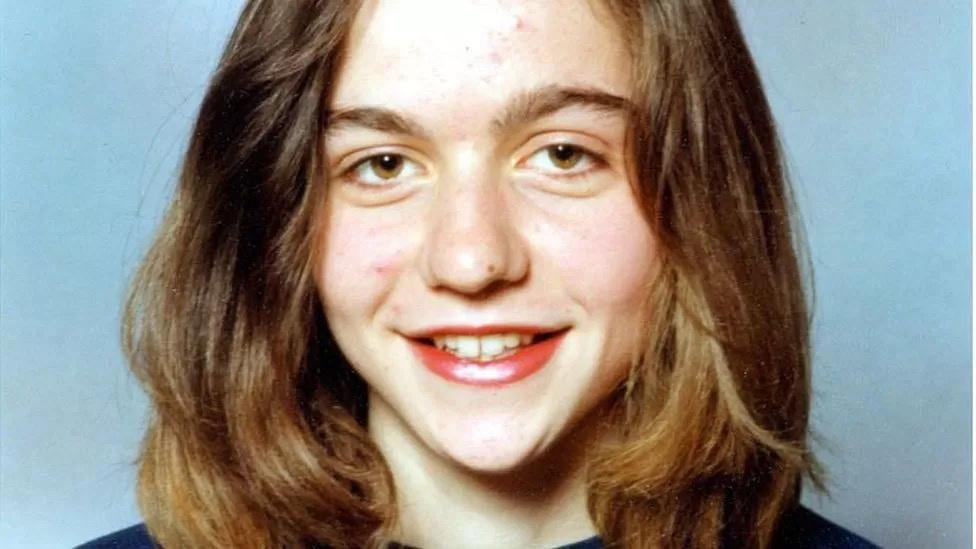
Michelle Bettles was a sex worker in Norwich who was murdered in March 2002, aged 22
- Published
A forensic scientist involved with investigations into some of Britain's most notorious crimes has told how the unsolved murder of a mother-of-three 22 years ago affected her.
Prof Patricia Wiltshire told BBC Radio 4's Desert Island Discs the death of "poor" Michelle Bettles in 2002 was one of the crimes that had stayed with her.
Her body was found in Scarning, near Dereham, Norfolk, on Easter Sunday 2002. She had been strangled.
"When you think of that girl's misery and suffering," Prof Wiltshire told host Lauren Laverne.
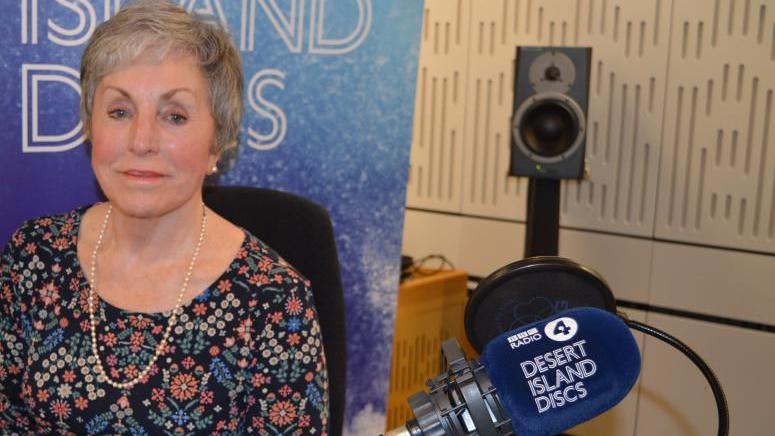
Forensic scientist Prof Patricia Wiltshire appeared on the BBC's Desert Island Discs
Prof Wiltshire is a forensic ecologist and botanist, and an expert in palynology – the study of pollen.
She has helped police solve cases including the murders of Holly Wells and Jessica Chapman, both 10, in Soham, Cambridgeshire, in 2002 and of eight-year-old Sarah Payne near Worthing, West Sussex, in 2000.
Sarah, from Hersham, Surrey, went missing while playing near her grandparents' home.
Ian Huntley was convicted of the murders of Holly and Jessica.
Roy Whiting was convicted of Sarah's murder.
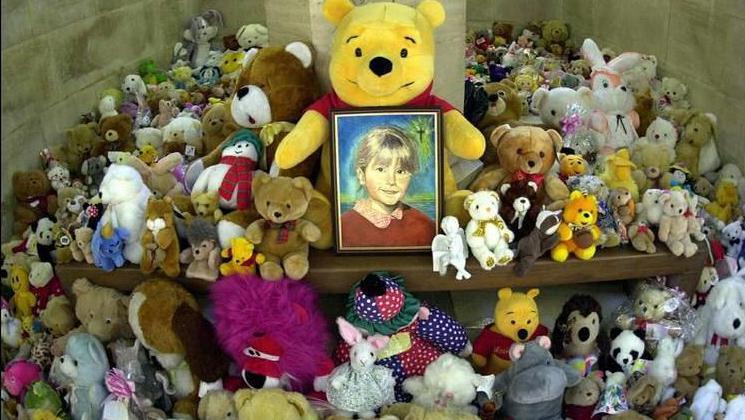
Cuddly toys were placed around a picture of Sarah Payne at a memorial service in Guildford Cathedral, Surrey, 24 years ago
Speaking about the case of Ms Bettles, a sex worker who was last seen in Norwich on the night of 28 March 2002, Prof Wiltshire said: "Poor Michelle did affect me.
"She had a drug habit. She was supporting a pimp. Those children that she did not want to give up."

Jessica Chapman (left) and Holly Wells were murdered in Soham, Cambridgeshire, in 2002
Prof Wiltshire said Ms Bettles' body was found in "very pretty woodland".
But she said there was an "incredible" forensic profile of "somewhere else" - a place that "involved a pond and big honeysuckle".
She said police had found a place with a "big pond" and a "huge honeysuckle" some miles away.
Prof Wiltshire said the pond had been dredged.
She added: "I think they {the killer] must have left her on the dredgings and then they had taken her off and dumped her."
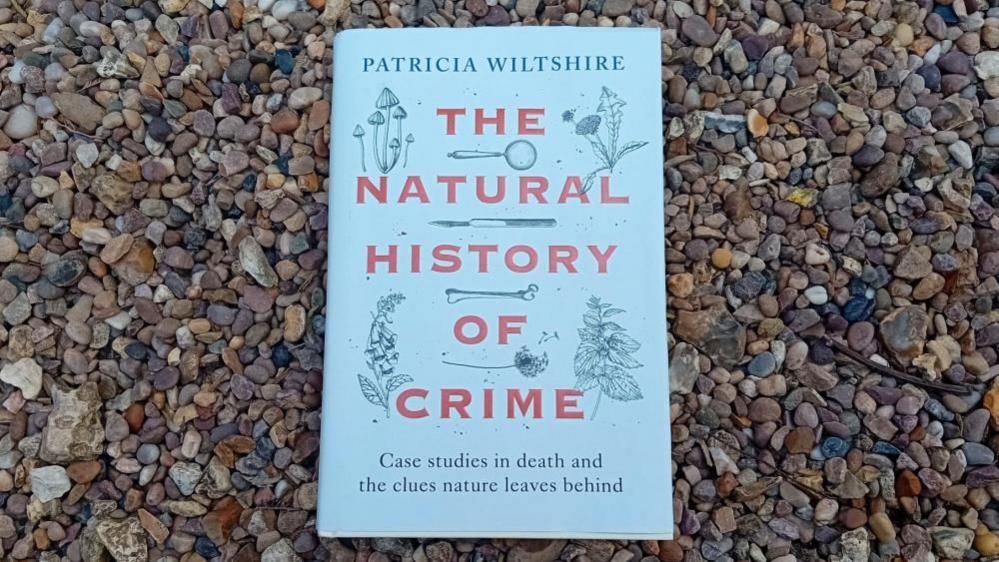
Prof Wiltshire's book, The Natural History of Crime, was published earlier this year
No-one has been convicted of Ms Bettles' murder.
Police began a forensic review of the case in March 2022 - on the 20th anniversary of her death.
Detectives said they collected a "complete male DNA profile" from her clothing.
Officers said the inquiry used advances in forensic technology "not possible" in 2002 to re-examine DNA found on Ms Bettles' clothes.
Prof Wiltshire told Desert Island Discs: "If we had the right artefacts, shoes, car, I could have put him there, perhaps."

Police began a forensic review of Ms Bettles' case in March 2022
Prof Wiltshire, who detailed her involvement in a number of investigations in a book, The Natural History of Crime, earlier this year, also discussed her work on the Soham case.
She said police had asked her to find the path the killer had taken to the ditch where Holly and Jessica's bodies were discovered.
Prof Wiltshire said through experiments, and observations in her garden, she estimated that nettles near the ditch had been stepped on just under two weeks earlier - which tallied with the day the girls vanished.
Prof Wiltshire can be heard on Desert Island Discs on BBC Radio 4 at 10:00 BST on Sunday
Follow Norfolk news on Facebook, external, Instagram, external and X, external. Got a story? Email eastofenglandnews@bbc.co.uk, external or WhatsApp us on 0800 169 1830
Related topics
- Published12 October 2022
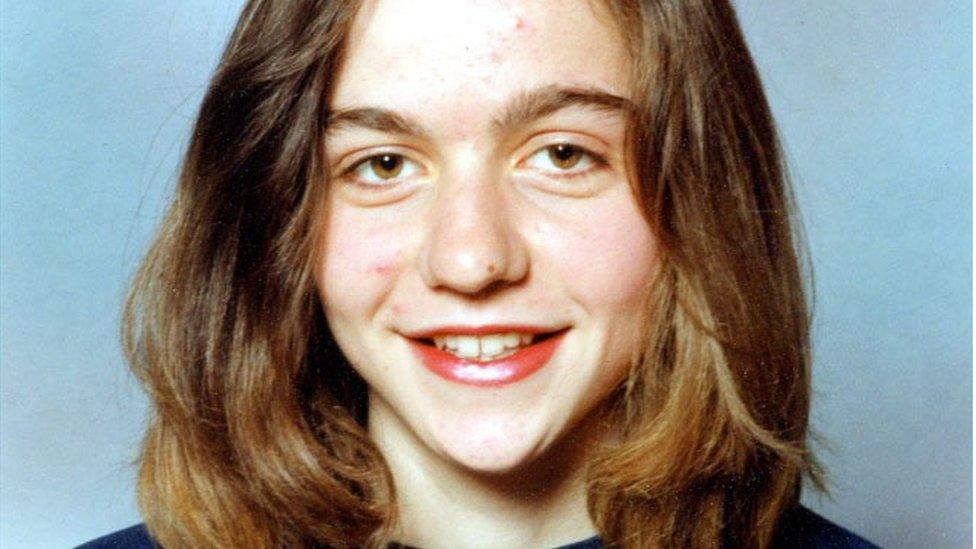
- Published4 August 2022

- Published13 February 2024
